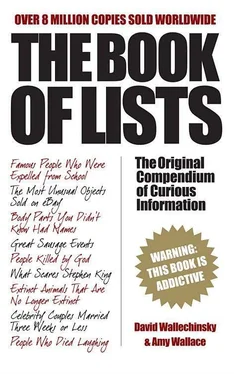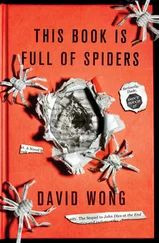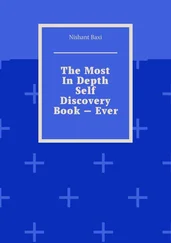Final title: Alice’s Adventures in Wonderland (1865)
Author: Lewis Carroll
• Original title: All’s Well That Ends Well
Final title: War and Peace (1866)
Author: Leo Tolstoy
• Original title: The Sea-Cook
Final title: Treasure Island (1883)
Author: Robert Louis Stevenson
• Original title: The Chronic Argonauts
Final title: The Time Machine (1895)
Author: H.G. Wells
• Original title: Paul Morel
Final title: Sons and Lovers (1913)
Author: D.H. Lawrence
• Original title: Stephen Hero
Final title: A Portrait of the Artist as a Young Man (1916)
Author: James Joyce
• Original title: The Romantic Egotist
Final title: This Side of Paradise (1920)
Author: F. Scott Fitzgerald
• Original title: The Village Virus
Final title: Main Street (1920)
Author: Sinclair Lewis
• Original title: Incident at West Egg; also Among Ash Heaps and Millionaires, Trimalchio in West Egg, On the Road to West Egg, Gold-Hatted Gatsby and The High-Bounding Lover
Final title: The Great Gatsby (1925)
Author: F. Scott Fitzgerald
• Original title: Fiesta ; also The Lost Generation, River to the Sea, Two Lie Together and The Old Leaven
Final title: The Sun Also Rises (1926)
Author: Ernest Hemingway
• Original title: Tenderness
Final title: Lady Chatterley’s Lover (1928)
Author: D.H. Lawrence
• Original title: Twilight
Final title: The Sound and the Fury (1929)
Author: William Faulkner
• Original title: Bar-B-Q
Final title: The Postman Always Rings Twice (1934)
Author: James M. Cain
• Original title: Tomorrow Is Another Day ; also Tote the Weary Load, Milestones, Jettison, Ba! Ba! Black Sheep, None So Blind, Not in Our Stars and Bugles Sang True
Final title: Gone with the Wind (1936)
Author: Margaret Mitchell
• Original title: The Various Arms ; also Return to the Wars
Final title: To Have and Have Not (1937)
Author: Ernest Hemingway
• Original title: Something That Happened
Final title: Of Mice and Men (1937)
Author: John Steinbeck
• Original title: Salinas Valley
Final title: East of Eden (1952)
Author: John Steinbeck
• Original title: Interzone
Final title: Naked Lunch (1959)
Author: William S. Burroughs
• Original title: Catch-18
Final title: Catch-22 (1961)
Author: Joseph Heller
• Original title: The Fox
Final title: The Magus (1966)
Author: John Fowles
• Original title: A Jewish Patient Begins His Analysis
Final title: Portnoy’s Complaint (1969)
Author: Philip Roth
• Original title: The Summer of the Shark ; also The Terror of the Monster and The Jaws of the Leviathan
Final title: Jaws (1974)
Author: Peter Benchley
• Original title: Before This Anger
Final title: Roots: The Saga of an American Family (1976)
Author: Alex Haley
• Original title: The Shine
Final title: The Shining (1977 — altered when King learned that ‘shine’ was a derogatory term for African Americans, as they are often employed shining shoes; and a black man is a central character in the novel.)
Author: Stephen King
• Original title: Harry Potter and the Doomspell Tournament
Final title: Harry Potter and the Goblet of Fire (2000)
Author: J.K. Rowling
• Original title: Seven Seas and the Thirteen Rivers
Final title: Brick Lane (2003)
Author: Monica Ali
– R.J.F. & the Eds
THE BOOKSELLER ’S 9 GREAT MODERN SURPRISE BESTSELLERS
Founded in 1858, The Bookseller is the leading journal of the book industry in the UK.
JONATHAN LIVINGSTONE SEAGULL by Richard Bach (Turnstone Press, 1970)
An icky fable about a seagull’s quest. No one would go for that, advised several people, including the author’s agent (‘they’re not interested in a talking seagull’). The first US printing was 7,500 copies; the book went on to sell millions, in numerous languages.
THE DAY OF THE JACKAL by Frederick Forsyth (Hutchinson, 1971)
Forsyth, a foreign correspondent whose previous book had been an account of the war in Biafra, received numerous rejections for his first thriller, perhaps because publishers did not expect readers to be thrilled by a story of which they knew the outcome (assassin fails to kill de Gaulle). It sold millions, was made into a film and established the career of one of the most successful novelists of our time.
WATERSHIP DOWN by Richard Adams (Rex Collings, 1972)
Richard Adams’ tale about rabbits first appeared, having been rejected in prototype form by several London publishers, in a print run of just 2,000 copies, from the tiny firm of Rex Collings. In the next 10 years, it sold more than five million copies.
THE COUNTRY DIARY OF AN EDWARDIAN LADY by Edith Holden (Webb & Bower, 1977)
A rediscovered, illustrated diary. It became a staple on the bestseller list for years and was responsible for a fashion, now defunct, for prettily illustrated gift books, often using existing texts — The Illustrated Lark Rise to Candleford (Century, 1982), for example.
THE F-PLAN by Audrey Eyton (Penguin, 1982)
A diet book that sold one million copies. Fibre, which Eyton promoted, is still in vogue; but many other diet trends have supplanted hers. The current bestseller is The Atkins Diet .
A BRIEF HISTORY OF TIME by Stephen Hawking (Bantam Press, 1988)
It was a book that few people understood. Yet many bought it and it was translated into more than 30 languages. The genius of Hawking’s mind, belonging to a body disabled by motor neurone disease, shone out compellingly; and the title, promising illumination in a nutshell, was another strong selling point.
A YEAR IN PROVENCE by Peter Mayle (Hamish Hamilton, 1989)
Former adman Mayle’s book about his move to the French countryside started out with a print run of 3,000 copies. Not only did it become a bestseller, but it spawned a genre and, possibly, a social trend: the television schedules and bookshelves are awash with the stories of people who have embarked on similar adventures.
HARRY POTTER AND THE PHILOSOPHER’S STONE by J.K. Rowling (Bloomsbury, 1997)
Numerous publishers rejected Rowling’s first Harry Potter story, because 250-page novels for children were deeply unfashionable. Nor did they warm to the magical and boarding school elements. Whoops.
EATS, SHOOTS & LEAVES by Lynne Truss (Profile, 2003)
Autumn 2003 saw publication of autobiographies by David Beckham and by World Cup-winning England rugby captain Martin Johnson, as well as of numerous other blockbusters. They were all outsold by Lynne Truss’s little punctuation guide, which went on to be a number one bestseller in the US as well.
28 BAD REVIEWS OF FAMOUS WORKS
The Monkey Wrench Gang — Edward Abbey, 1975
The author of this book should be neutered and locked away forever.
Читать дальше












